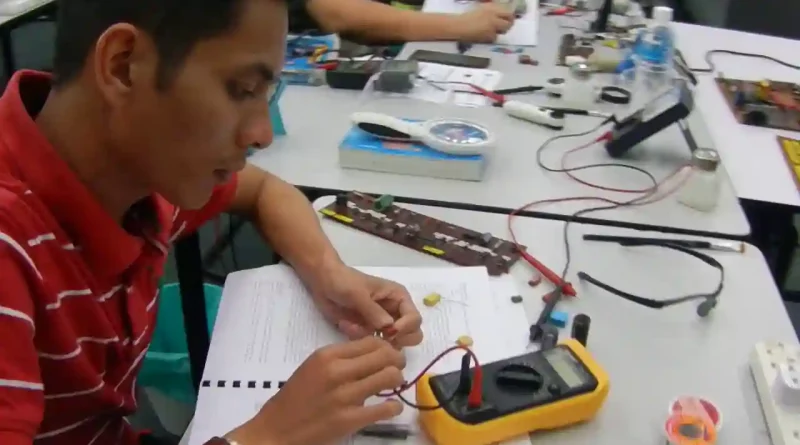Electrical Training Program for Labor Unions
There are numerous locations in the US where you can receive training to become an electrician, whether for your simple home repairs or to launch an incredible new lucrative career. However, electrical training is the only focus of one institution in San Antonio, which offers it to those who can prove they have the talent and the drive to pursue it. So let’s examine the features it provides.
For instance, electrical training is strictly governed by the law in Los Angeles County, San Antonio. The National Electrical Contractors Association (NECA) and the International Brotherhood of Electrical Workers (IBEW) are dedicated to compliance and electrical training that imparts methods, tools, and rules to apprentices in the union labor force. The well-organized employees and managers know how crucial electricians are to the building process. They have established an electrical training facility that instructs journey-level electricians to work with programmable logic control systems and sophisticated data in modern commercial and residential structures.
The private sector is paying for this union-sponsored electrical training school in San Antonio and payments from the union members’ businesses. As a result, the trainees don’t have to pay tuition and are even compensated with a living wage for their practical education.
In the training program, journeyman electricians supervise apprentices and instruct them in the electrical craft both in the classroom and on the job site. Every week, there are at least six hours of evening classes. Regular pay raises are offered following reports of work experience, academic performance, and attendance.
Some people prefer the traditional technique of apprenticeship for learning. Apprenticeship is also when students may begin to make money. Electrical training institutions typically concentrate on your interest in the construction or maintenance departments. Both of these things interest some electricians. Wire installation in freshly constructed homes, industries, and other structures is typically the subject of electrical training for those interested in the construction industry. Electricians who work in the maintenance sector upgrade and fix older electrical items.
Any electrical training course should start by teaching students how to interpret a blueprint. This blueprint serves as a printout explaining how the project will be completed. A competent electrician should be able to read and comprehend blueprints pretty well. A few electricians are drawn to careers in low-voltage appliances. They typically set up video equipment such as security cameras, phones, computers, fire alarms, intercoms, etc. In the telecommunications industry, electricians are also capable of installing coaxial cables. Electrical equipment in the maintenance industry is routinely inspected to see if it is operating correctly. And doing all of this needs excellent electrical training.
A five-year apprenticeship in electrical work is required. Each apprentice spends at least 160 hours a year in the classroom. They almost always have to work a minimum of 8000 hours.
The electrical training program demonstrates NECA and IBEW’s dedication to developing highly skilled electricians for current and prospective clients. The jobs this workforce accepts are finished on time and with the best quality materials thanks to this training. Rarely do calls back occur.
The learning doesn’t stop after the institute’s basic electrical training. It’s a continuous process, especially considering the numerous green energy initiatives across the state and the country. For example, teaching workplace safety is one of the main objectives of electrical training. Safety is taught in all electrical training programs. A safe workplace is the subject of one course.
Additionally, it goes beyond ensuring the security of electrical employees. The electrical planning considers the possibility that client workers will continue to operate in the building. In contrast, electrical projects are being completed in retail, office, or other commercial settings. They too need to be protected.
The electrical training institute is away from the ongoing evolution of electrical technology. However, each graduate electrician is kept up to date on the most recent business advancements, and ongoing education electrical and related courses are periodically presented.




